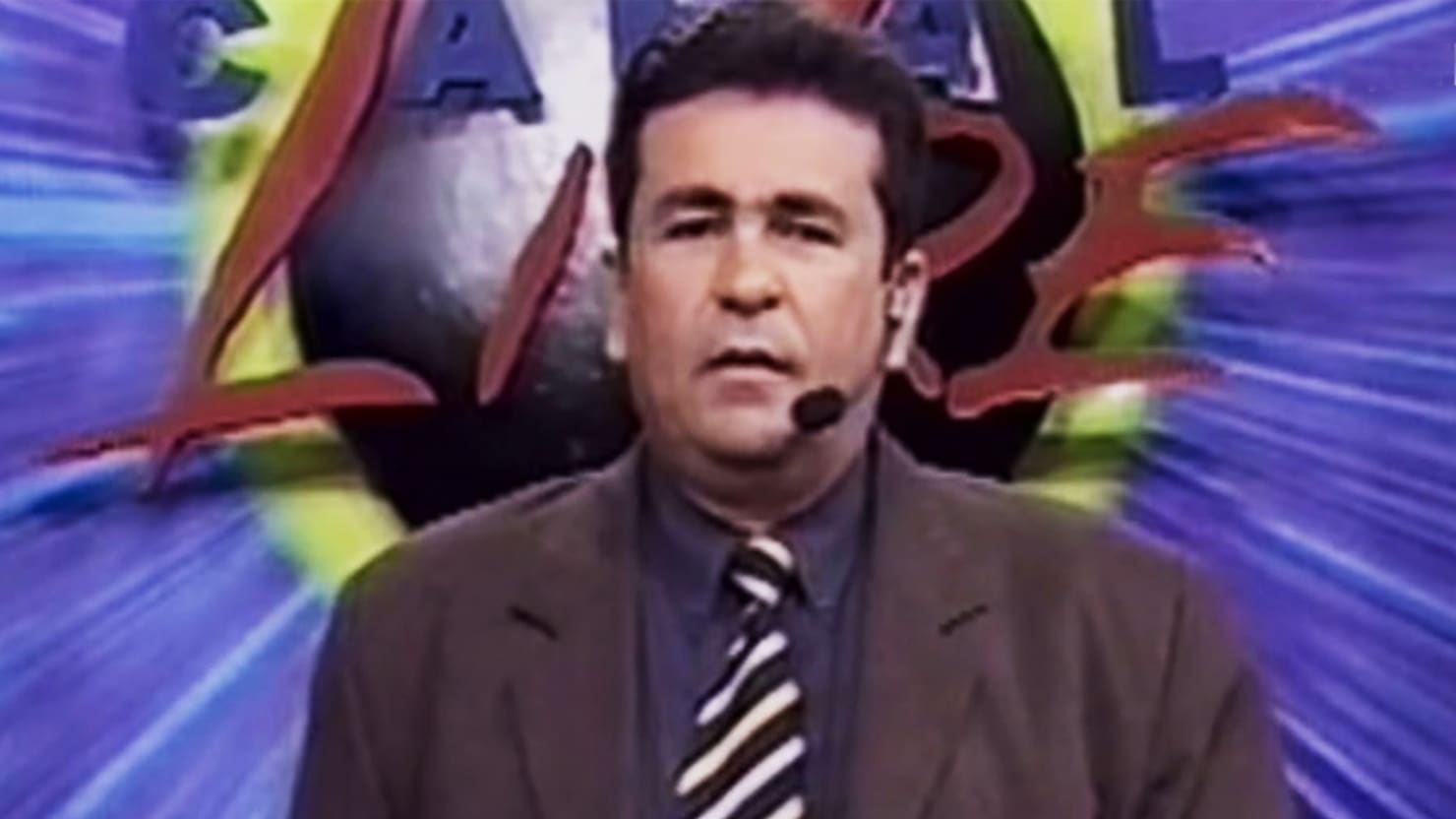[....]
“The case was so surreal that it felt like a horror movie. It was completely crazy,” says one interviewee in director Daniel Bogado and executive producers Dinah Lord and Eamonn Matthews’ seven-part show, which is currently streaming on Netflix.
It’s a bold proclamation that’s anything but hyperbole.
Killer Ratings concerns Wallace Souza, a lifelong resident of Manaus, the capital city of Brazil’s northern state of Amazonas. Compelled to combat his home’s burgeoning drug trade, Souza became a cop before segueing, in 1989, into his most famous role as the television host of Canal Livre, a hugely popular, totally wild investigative journalism program in which he (often alongside his brothers, as well as a puppet) went after criminals both verbally and literally, joining police on raids and to crime scenes, all of which was depicted on-air.
Canal Livre was such a hit that it turned Souza into a celebrity crusader and launched his political career. In 1998, he was elected to the state legislative assembly, a seat he’d win twice more, in increasingly dominant fashion, in 2002 and 2006. As his Canal Livre director Vanessa Lima states, he was “the defender of the people” and “a hero in people’s eyes,” the man who bravely and uncompromisingly stood up to murderers, kidnappers, traffickers and unscrupulous powers-that-be, no matter the personal risks.
Until, that is, he was accused in 2009 of orchestrating assassinations to boost his ratings.
Yes, you read that correctly. Killer Ratings is the portrait of a beloved champion of the poor and downtrodden who was accused of being the very thing he railed against: a drug-trafficking kingpin; and moreover, a kingpin who orchestrated hits in order to eliminate competition and expand his empire, as well as to provide great, sensationalistic fodder for his own social justice TV show. Just writing those words is enough to make one’s head spin, and yet Bogado’s thorough account of Souza’s rise and fall leaves no doubt that this outlandish madness is not just the figment of a screenwriter’s lurid imagination.
[....]
In TV clips, Souza states that the only way to treat a drug dealer is with a bullet. That tough, in-your-face frankness won him legions of fans. According to Secretary of Security Thomaz Vasconcelos and Civil Police detective Divanilson Cavalcanti, both of whom would eventually become part of a task force aimed at taking down Souza, it was also emblematic of the man’s ruthlessness. The notion that Souza was not what he seemed first arose when his bodyguard, former federal police officer Moacir Jorge da Costa, better known as “Moa,” was arrested for committing nine (!) murders while still on the force. Moa fingered Souza and his son Raphael as the chiefs who ordered him to carry out those executions. And to lend credence to his confession, he mentioned a shocking Canal Livre segment about a burning corpse, about which the reporter knew considerable details, and which Moa says Raphael was responsible for, following his father’s orders.
The ensuing case against Souza hinged on a few key elements, including the fact that his camera crews always seemed to know precisely where to find brutal crimes (and those who perpetrated them); witnesses who stated that they did his dirty work; and a collection of suspect items found in his house, from a stash of weapons and illegal cash, to a handwritten note that diagramed both recently killed crooks and those who apparently offed them.

The Wildly Popular TV Host Accused of Killing People to Boost His Ratings
The true-crime series ‘Killer Ratings,’ currently streaming on Netflix, probes the life of Wallace Souza, a No. 1-rated TV host in Brazil accused of offing people to up ratings.
www.thedailybeast.com

